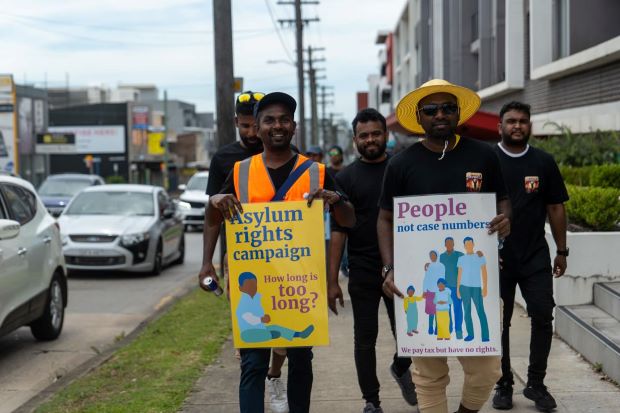Australia faces fresh scrutiny over asylum seeker treatment
Immigrants, including Sri Lankans, detained in 'dry cell' with no toilets or running water, says Commonwealth National Preventive Mechanism
COLOMBO – Australian immigration authorities are facing renewed criticism over their treatment of asylum seekers and other detainees including Sri Lankans, following a series of damning reports about conditions in offshore and mainland detention facilities.
The controversy resurfaces as the UN Human Rights Committee ruled last week that Australia violated international law by transferring underage and unaccompanied asylum seekers, many of them from Sri Lank to offshore detention facilities in Nauru, declaring that “outsourcing operations does not absolve States of accountability”.
Further compounding these concerns, a new report released Monday (13) by the Commonwealth National Preventive Mechanism has exposed disturbing conditions at Western Australia’s Yongah Hill Immigration Detention Centre. The facility, controlled by the Australian Border Force (ABF), has come under fire for its treatment of detainees, particularly in its high-security section.
According to the report, immigrants, including Sri Lankans are being held in “dry cells” without basic amenities such as toilets or running water. The June review revealed that detainees face severe restrictions on support services, family visits, and access to communication channels. Of particular concern is the prolonged detention of approximately 160 asylum seekers at Yongah Hill, with 29 individuals having been detained for more than six years.
The UN Human Rights Committee’s decision highlighted Australia’s failure to justify why asylum seekers could not be transferred to community detention centres on the mainland, which are better equipped to meet the needs of vulnerable individuals. Committee member Mahjoub El Haiba emphasized, “Where a State exercises effective control over an area, its obligations under international law remain firmly in place and cannot be transferred.” The full Decisions of both cases are available online: M.I. et al. v Australia and Nabhari v Australia
“It was established that Australia had significant control and influence over the regional processing facility in Nauru, and thus, we consider that the asylum seekers in those cases were within the State party’s jurisdiction under the ICCPR,” said El Haiba.
The UN Committee has called on Australia to provide adequate compensation to victims and to review its migration legislation and bilateral transfer agreements to ensure compliance with international human rights standards. The series of recent reports and rulings put increasing pressure on Australian authorities to address long-standing concerns about their treatment of asylum seekers, particularly vulnerable groups like the Tamil refugees from Sri Lanka.
As these developments unfold, advocacy groups continue to call for immediate reforms to Australia’s immigration detention system and the release of long-term detainees into community-based alternatives.
Last year in November, over 200 refugees and supporters marked a significant milestone by marching 10 kilometres from Australian Prime Minister Anthony Albanese’s office to the Immigration Minister’s office, commemorating 100 days of continuous protest. This demonstration, which culminated in a rally and speeches in Punchbowl, highlighted the plight of refugees denied permanent visas for over 12 years. Speakers at the event shed light on the profound impact of the current system, including barriers to higher education, employment, and access to essential services.
-TG



Comments are closed, but trackbacks and pingbacks are open.